Aorta
Current Trends in Functional Status and Quality of Life in Aortic Dissection (ADQOL)
This study evaluates current quality of life and functional status among patients who have a history of aortic dissection. Patients who have aortic dissection (a tear in the blood vessel often caused by high blood pressure) do not know how much activity is safe. Often this leads to stress, poor health, and poor quality of life.
- Funding: Department of Surgery
- PI: Areck Ucuzian, MD
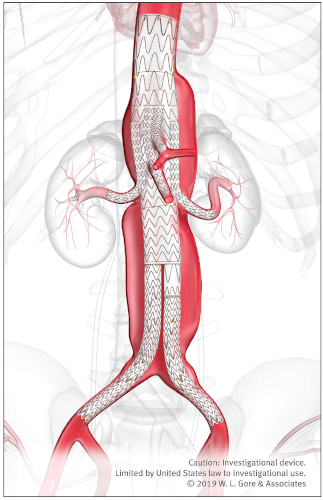 Evaluation of the GORE® EXCLUDER® ThoracoAbdoMinal Branch Endoprosthesis in the Treatment of Thoracoabdominal and Pararenal Aortic Aneurysms (Gore TAMBE)
Evaluation of the GORE® EXCLUDER® ThoracoAbdoMinal Branch Endoprosthesis in the Treatment of Thoracoabdominal and Pararenal Aortic Aneurysms (Gore TAMBE)
This study will look at treating thoracoabdominal or pararenal (aortic) aneurysm disease with a new stent-graft design. In this research study, a device will be placed inside the aorta, to block the injured part of the artery wall from the blood pressure that could lead to rupture.
- Funding: W.L. Gore & Associates, Inc.
- PI: Shahab Toursavadkohi, MD
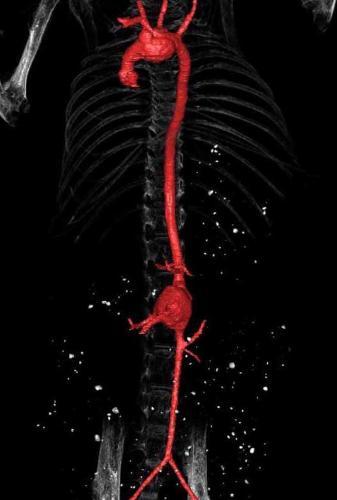
Mechanisms of aortopathy in LRP1 and lysyl oxidase deficiency
Aortic dissection and aneurysms accounts for over 10,000 deaths in the United States each year, and 1-2% of all deaths in Western countries. Understanding the role of the LDL receptor related protein (LRP1) and lysyl oxidase (LOX) in aneurysm and dissection formation could provide insights into how these diseases develop. A better understanding of the development of aortic disease will ultimately identify way to improve treatments. The objectives of this project are to investigate the molecular mechanisms by which aneurysms and dissections develop, and to investigate how physical activity and exercise affects these processes.
Funding: NHLBI (NIH), SVS Foundation/American College of Surgeons
PI: Areck Ucuzian, MD, PhD
Other Areas of Interest
- Abdominal Aortic Aneurysms: Endovascular
- Abdominal Aortic Aneurysms: Open Surgical
- Abdominal Aortic Aneurysms: Ruptured
- Aortic Dissection
- Thoracic and Thoracoabdominal Aneurysms: Branched and Fenestrated Endograft
- Thoracic and Thoracoabdominal Aneurysms: Endovascular
- Thoracic and Thoracoabdominal Aneurysms: Open Surgical
- Aortoiliac occlusive Disease
Carotid Arteries
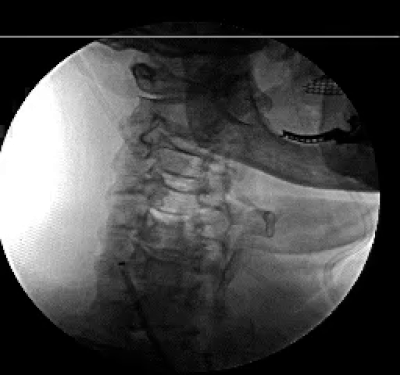
Carotid Revascularization and Medical Management for Asymptomatic Carotid Stenosis Trial (CREST-2)
This study compares two independent multicenter, randomized controlled trials of carotid revascularization and intensive medical management versus medical management alone in patients with asymptomatic high-grade carotid stenosis. One trial will randomize patients to endarterectomy versus no endarterectomy and another will randomize patients to carotid stenting with embolic protection versus no stenting. All participants receive intensive medical management.
- The Center for Vascular Research operates Site 035 (Baltimore VA Medical Center) of the CREST-2 Trial as well as the Vascular Imaging Core, which oversees all imaging for all CREST-2 sites.
- Funding: National Institute of Neurological Disorders and Stroke – NIH
- Site 035 PI: Sarasijhaa Desikan, MD
- VIC PI: Brajesh K. Lal, MD
- VIC Staff: John Yokemick, RVT, RDMS; Tara McDonald; Brian Caraballo, BSA
CREST-2 Registry (C2R)
C2R is an effort to ensure that high quality operators are performing carotid artery stenting at centers with adequate resources across the United States. For this purpose, a group of physicians have come together to form a Management and Steering committee that will oversee the Registry.
Information pertaining to the diagnosis, indications, procedural details and outcomes of carotid artery stenting will be reviewed to credential individual stentors and centers to continue to perform this procedure.
- Funding: National Institute of Neurological Disorders and Stroke – NIH
- PI: Brajesh Lal, MD
- Sr. Research Project Coordinator: Kimberlly Nordstrom, BS, CCRC
CREST-LifeLine Screening Program (CREST-LLS)
This is a program supplementing the CREST-2 trial using the Life Line Screening Company to enhance enrollment in CREST-2, particularly women and minorities.
- Funding: National Institute of Neurological Disorders and Stroke – NIH
- PI: Brajesh Lal, MD
Asymptomatic Carotid Stenosis: Cognitive Function and Plaque Correlates (ACCOF-1)
Study demonstrated that asymptomatic carotid stenosis impairs cognitive function and developed a novel 3D ultrasound technology/technique to evaluate carotid plaque morphology (geometry and tissue-composition). Transcranial Doppler was used to measure microembolization rates to the middle cerebral artery. TCD was also used with breath holding to quantify cerebrovascular reactivity.
- Funding: VA Clinical Sciences Research and Development Department (CSR&D)
- PI: Brajesh K Lal, MD
- VIC Staff: John Yokemick, RVT, RDMS
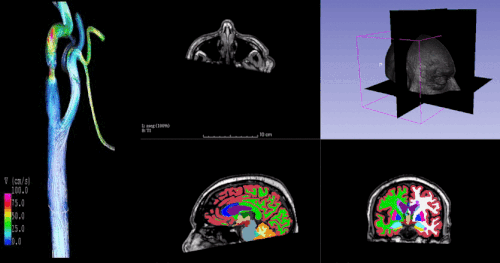
Asymptomatic Carotid Stenosis: Cognitive Function and Plaque Correlates – 2 (ACCOF-2)
A clinical study looking at patients with >70%, high-grade stenosis. Assessment of cognitive and physical functions at baseline then reassessment after revascularization.
- Funding: VA Clinical Sciences Research and Development Department (CSR&D)
- PI: Brajesh K Lal, MD
- Sub-I: Sarasijhaa Desikan, MD; Vicki Gray, MPT, PhD; Moira Dux, PhD; Jigar Patel, MD; John D. Sorkin, MD, PhD
- VIC Staff: John Yokemick, RVT, RDMS; Brian Caraballo; Matt Chrencik
Asymptomatic Carotid Stenosis: Cognitive Function and Plaque Correlates - Exercise Intervention (ACCOF-EX)
A clinical study looking at patients with >50%, moderate asymptomatic carotid artery stenosis. Assessment of cognitive and physical functions after 12-week aerobic exercise and balance training program.]
- Funding: Department of Surgery
- PI: Sarasijhaa Desikan, MD
- Mentors & Sub-Investigators: Brajesh K Lal, MD; Vicki Gray, MPT, PhD
- VIC Staff: John Yokemick
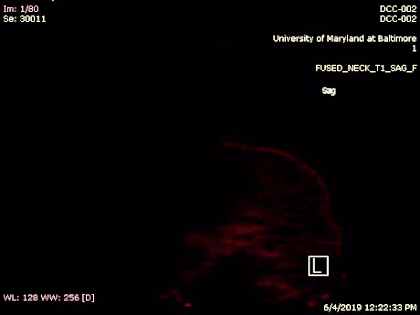
Dental Carotid Cognitive Study (DCCS)
Treatment of Periodontitis to Prevent Dementia in Older Adults with Asymptomatic Carotid Artery Stenosis and Mild Cognitive Impairment: A clinical study examining the effects of intensive therapy for periodontitis on cognition, inflammation and brain function in high-risk people with asymptomatic carotid artery stenosis and mild cognitive impairment. Results could highlight periodontal disease as a readily modifiable risk factor for dementia.
- Funding: National Institute on Aging - NIH
- PI: Brajesh Lal, MD
- Sub-I: Andrew Goldberg, MD; Thomas Oates,DMD, PhD; Brock Beamer, MD; Laurence Magder, PhD; Shari Waldstein, PhD; Michael Terrin, MD, MPH; John Sorkin, MD, PhD
- VIC Staff: John Yokemick RVT, RDMS; Brian Caraballo
Healthy Aging in Neighborhoods of Diversity across the Life Span (HANDLS) (Intima Media Thickness Assessment)
As part of the Healthy Aging in Neighborhoods of Diversity across the Life Span (HANDLS) study, the Vascular Imaging Core Lab provided quality assurance of IMT measurements, ensuring accuracy.
- PI: Brajesh K Lal, MD
- VIC Staff: John Yokemick, RVT, RDMS
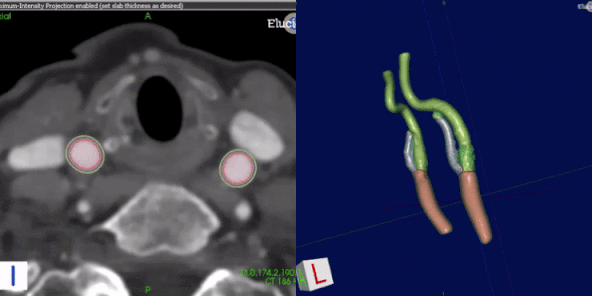
Carotid Plaque Imaging (Elucid vascuCAP)
A retrospective, multi-site study using a histologically validated software (vascuCAP) to generate 3D reconstructions of the carotid artery to assess plaque geometry and morphology from standard of care CT angiograms.
- PI: Brajesh K Lal, MD
- Sub I: Jigar Patel, MD
- VIC Staff: Matthew Chrencik
Evaluation of Functional Near-Infrared Spectroscopy in Assessing Perfusion in Patients with Vascular Disease (fNIRS)
This study will assess functional near-infrared spectroscopy (fNIRS) as an alternative for evaluating perfusion. fNIRS allows for the measurement of perfusion during tasks and does not expose the subject to radiation or contrast. We will obtain fNIRS measurements while performing physical movements and cognitive tasks and determine the reliability of the measure in evaluating perfusion.
- PI: Sarasi Desikan, MD
- Sub Is: Brajesh K. Lal MD, Vicki Gray PhD
Other Areas of Interest
- Carotid Artery Stenosis
- Carotid Artery Aneurysms
- Carotid Artery Endarterectomy
- Carotid Artery Stenting
- Vertebral Artery Disease
Complications
Long-Term Outcomes of patients treated with Extracorporeal Membrane Oxygenation Survey (LTO-ECMO)
Extracorporeal membrane oxygenation (ECMO) is a device that provides cardio-respiratory support to patients with respiratory failure, secondary to a pneumonia, heart failure, pulmonary embolism, etc.. The purpose of this study is to identify the long term complications of patients who require ECMO (ExtraCorporeal Membrane Oxygenation) during hospitalization.
PI: Rafael Cires-Drouet, MD
Sub Is: David Kaczorowski MD; Khanjan Nagarsheth, MD, MBA
VA Resiliance Study (VAR)
There are limited data on longitudinal trends of physiological dysregulation among older surgical patients. This study will provide information about the trajectories of robust and resilient individuals and allow better selection of surgical candidates and addressing of care needs using trended lab and vital sign data.
PI: Brajesh K. Lal, MD
Sub I: Nikhil Prasad, MD
Areas of Interest
- Infected aneurysms
- Graft infection
Dialysis Access
Areas of Interest
- Maturation
- Failing
- Non-thrombotic complication
- Thrombosed
- Stenting
Lower Extremity Arteries
Best Endovascular versus Best Surgical Therapy in Patients with Critical Limb Ischemia (BEST-CLI)
This study is a randomized, multicenter, controled trial that compares the effectiveness of best available surgical treatment with best available endovascular treatment (minimally invasive procedure) in adults with critical limb ischemia who are eligible for both treatment options.
- Funding: NIH National Heart, Lung, and Blood Institute
- Site PI: Areck Ucuzian, MD, PhD
BEST Registry
The purpose of this registry is to collect data that will support future research studies for critical Ischemic Limb disease. This registry will describe current approaches and treatments of critical ischemic limb disease analyze participant characteristics to describe the natural history of the disease, assess quality of life, and describe participant interactions with the health care system, and treatment practices across multiple institutions.
- Funding: NIH National Heart, Lung, and Blood Institute (NHLBI)
- PI: Areck Ucuzian, MD, PhD
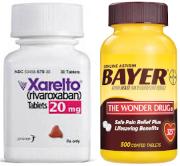
An international, multicenter, randomized, double-blind, placebo-controlled phase 3 trial investigating the efficacy and safety of rivaroxaban to reduce the risk of major thrombotic vascular events in patients with symptomatic peripheral artery disease undergoing lower extremity revascularization procedures (VOYAGER PAD)
This study assesses whether adding rivaroxaban (Xarelto) to aspirin (ASA) will help reduce the risk of major clot formation in blood vessels when compared to aspirin alone in patients with symptomatic arterial diseases who have undergone revascularization procedure.
- Funding: Bayer Healthcare Pharmaceuticals
- Site PI: Shahab Toursavadkohi, MD
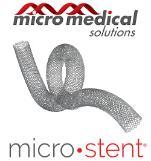
A Clinical Evaluation of the MicroStent® Peripheral Vascular Stent in Subjects with Arterial Disease Below the Knee (STAND)
This study investigates if the treatment of narrowed leg blood vessels below the knee with the Micro Medical Solutions MicroStent® System is safe, effective, and beneficial by comparing the outcomes of treatment with the MicroStent® System to treatment with percutaneous transluminal angioplasty (PTA) alone. The MicroStent® System used in this study is an investigational device and is not approved for commercial use in the US. Standard PTA is the most common form of treatment for narrowed blood vessels below the knee at this time.
- Funding: Micro Medical Solutions, Inc.
- Site 07 PI: Khanjan Nagarsheth, MD
Activity To Improve Outcomes iN peripheral arterial disease - 1 (ACTION-1)
Research project conducted on patients with peripheral arterial disease (PAD) that do not require revascularization. The goal is to examine the effects of 3 months of exercise rehabilitation and neuromuscular stimulation on leg blood flow, physical function, quality of life and general health.
- Funding: NIH, VA
- PIs: Steven Prior, PhD
- Sub-I: Odessa Addison and Brajesh K Lal, MD
- VIC Staff: John Yokemick, RVT, RDMS; Peggy Kidwell, BS, RVT; Matt Chrencik, BS
Activity To Improve Outcomes iN peripheral arterial disease - 2 (ACTION-2)
Research project conducted on patients with peripheral arterial disease (PAD) that do not require revascularization. The goal is to examine the physical function, quality of life, leg perfusion and general health at baseline in these patients.
- Funding: NIH, VA
- PIs: Odessa Addison, PhD
- Sub-I: Steven Prior PhD, Brajesh K Lal, MD
- VIC Staff: John Yokemick, RVT, RMDS; Peggy Kidwell, BS, RVT; Matt Chrencik, BS
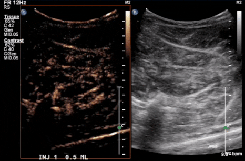 Activity To Improve Outcomes iN peripheral arterial disease - 3 (ACTION-3)
Activity To Improve Outcomes iN peripheral arterial disease - 3 (ACTION-3)
Research project conducted on obese patients with peripheral arterial disease (PAD) that do not require revascularization. The goal is to examine the effects of 3 months of exercise rehabilitation and neuromuscular stimulation on leg blood flow, physical function, quality of life and general health.
- Funding: NIH, VA
- PIs: Steven Prior, PhD
- Sub-I: Odessa Addison, PhD; Brajesh K Lal, MD
- VIC Staff: John Yokemick, RVT, RDMS; Matt Chrencik, BS
Activity To Improve Outcomes iN peripheral arterial disease - 4 (ACTION-4/ArtGene)
Research project conducted on patients with peripheral arterial disease (PAD) that require revascularization. The goal is to examine the effects of 3 months of exercise rehabilitation and neuromuscular stimulation on leg blood flow, physical function, quality of life and general health.
- Funding: NIH, VA
- PIs: Brajesh K Lal MD
- Sub-I: Steven Prior, PhD; Odessa Addison, PhD
- VIC Staff: John Yokemick, RVT, RDMS; Matt Chrencik, BS
Other Areas of interest
- Acute Ischemia: Treatment
- Claudication
- Compartment Syndrome
- Diabetic Foot Ulcer
- Infrainguinal Disease: Endovascular Treatment
- Lower Extremity Amputation
- Nonatheromatous Popliteal Artery Disease
- Pheripheral Artery Disease
- Lower Extremity Aneurysms
Lymphatics
Flexitouch VA Quality of Life
Lymphedema is a chronic and disfiguring disease usually secondary to excessive fluid and protein accumulation in the interstitium as a result of lymphatic system obstruction. It can occur either primarily or secondarily. This leads to limb swelling in early stages with progression to thickening skin and fibrosis leaving the affected extremity susceptible to skin breakdown and repeated infections. There is no cure for lymphedema, and the available treatment modalities consist of manual lymphatic drainage, compression therapy, and lymphatic exchange. Pneumatic Compression Devices offer a novel modality for the treatment of lymphatic obstruction. The Flexitouch System and Flexitouch Plus are PCDs that target all major lymphatic beds and release pressure in a systematic manner, mimicking a functional drainage system. The purpose of this study is to evaluate the effect of an advanced pneumatic compression device in improving symptoms and quality of life in patients with lower extremity lymphedema
- Funding: Tactile Medical
- PI: Areck Ucuzian, MD, PhD
Mesenteric / Renal Arteries
Areas of Interest
- Acute ischemia
- Chronic Ischemia
- Venous Thrombosis
- Aneurysms
- Stenosis
- Renovascular hypertension
Pharmacology
Areas of Interest
- Anticoagulation
- Newer anticoagulants/NOACS
- DOACS
- Antiplatelet therapy
- Atherosclerosis
- Lipid lowering therapy
- Statins
- PCSK9 inhibitors
Thoracic
Areas of Interest
- Thoracic Outlet Syndrome: Arterial
- Thoracic Outlet Syndrome: Neurogenic
- Thoracic Outlet Syndrome: Venous
- Thoracic Aortic Aneurysm
- Thoracic Aortic dissection
Trauma
Impact of REBOA and TXA on Dysregulated Fibrinolysis and Secondary Brain Injury Following Severe Polytrauma involving Advanced Hemorrhagic Shock, Tissue Injury and Traumatic Brain Injury: Implications for Battlefield Resuscitation
This is a scientific evaluation of a dismounted complex blast injury in a swine model. The project will focus on the physiologic response of proximal aortic occlusion and the impact on cerebral perfusion, oxygenation, and intracranial pressures the setting of shock, hypercoagulation and concomitant brain injury.
- Funding: Department of Defense
- PI: Charles Fox, MD
Areas of Interest
- Head and Neck
- Military
- Thoracic
- Aortic Dissection
- Pseudoaneurysm
Upper Extremity Arterial
Areas of Interest
- Upper Extremity Arterial Disease: Revascularization
- Upper Extremity Aneurysms
Veins

A Study of Patients with Lower Extremity Acute Limb Ischemia to Remove Thrombus with the Indigo Aspiration System (STRIDE)
This study collects real-world data on the safety and performance of the Indigo Aspiration System when used in patients who have Lower Extremity Acute Limb Ischemia (LE ALI). The Indigo Aspiration System is a medical device that has been cleared by the United States Food and Drug Administration (FDA) for removing blood clots from the blood vessels using continuous suction. The device is commercially available in the United States.
- Funding: Penumbra, Inc.
- PI: Khanjan Nagarsheth, MD
Other Areas of Interest
- Varicose Veins
- Varicose Veins: Ablation
- Varicose Veins: Sclerotherapy
- Vena Cava
- IVC Filters
- Venous Stents
- Post thrombotic syndrome
- Venous ulcers
Venous Thrombosis
Upper Extremity-Post Thrombotic Syndrome (UE-PTS)
This study is developing a scoring system that will allow us to diagnose post thrombotic syndrome and quantify the severity of dysfunction in the upper extremity using different physical function tests and questionnaires.
- Funding: VA Merit Award to Brajesh K. Lal, MD
- PI: Rafael Cires-Drouet, MD
Outcome of Deep Vein Thrombosis in the Upper Extremity (UE-DVT)
This study evaluates upper extremity deep vein thrombosis at UMMC with a focus on measuring the frequency with which it occurs, risk factors, treatment choices and outcomes such as death, recurrent clotting, escape of clots into the lungs, bleeding and secondary interventions.
- Funding: Department of Surgery
- PI: Rafael Cires-Drouet, MD
Role of upper body ergometry to enhance blood flow and volume in the lower extremity (EFFORT-1)
A prospective study using upper body ergometry to test whether it increases venous flow in the lower extremities.
- Funding: VA Rehabilitation Research and Development Service (RR&D)
- PI: Brajesh K. Lal, MD
- VIC Staff: John Yokemick
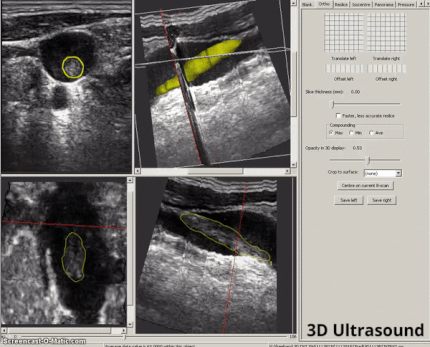
Role of a Novel Exercise Program to prevent Post Thrombotic Syndrome (EFFORT-2)
A randomized clinical trial of standard therapy compared to progressive exercise training in patients with leg deep vein clots.
- Funding: VA Rehabilitation Research and Development Service (RR&D)
- PI: Brajesh K. Lal, MD
- Sub-I: Rafael Cires-Drouet, MD
- VIC Staff: John Yokemick, Brian Caraballo
NEuroMuscular Electric Stimulation to support Increased venous blood flow Study (NEMESIS)
Study that is testing the use of NMES to increase blood flow volume and velocity within the brachia, subclavian, and internal jugular veins to aid in the accelerated resolution as well as prevention of upper extremity catheter-induced DVT.
- Funding: VA Rehabilitation Research and Development Service (RR&D)
- PI: Rafael Cires-Drouet, MD
- VIC Staff: John Yokemick
Chronic venous Thrombosis: Relief with Adjuncted Catheter-directed Therapy (C-TRACT)
This study aims to determine which treatment approach to Post-Thrombotic Syndrome (PTS), combination treatment or combination treatment plus endovascular therapy (EVT) provides patients with greater improvement in their PTS symptoms and their quality of life.
- PI: Khanjan Nagarsheth, MD, MBA
- VIC Staff: John Yokemick RVT RDMS, Brian Caraballo
Other Areas of Interest
- Acute Deep Venous Thrombosis
- Deep Vein Thrombosis (DVT - Upper/Lower Extremity)
- Iliocaval Venous Obstruction: Endovascular
- Iliocaval Venous Obstruction: Surgical
- Pulmonary Embolism
Wounds
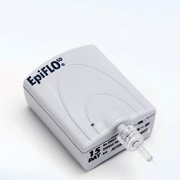
Oxygen for Vascular Incisional Healing
This study will determine if the use of an EPIFLO transdermal oxygen delivery unit, along with standard of care, can accelerate incisional wound healing following lower extremity revascularization surgery, compared to standard of care alone, as well as to find out if using EPIFLO is better than getting only standard incisional wound care for surgical site infections (SSI).
- Funding: Neogenix, LLC, DBA Ogenix
- PI: Khanjan Nagarsheth, MD
- Coordinator: Rachel White, RN
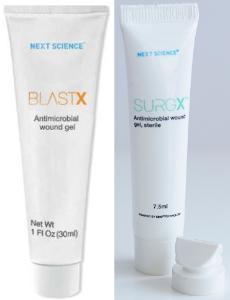
Would Gel vs. SOC for BKA Incisional Healing
This study is addressing how treating surgical wounds of below-knee amputations at the surgical incision site with SurgX™ (primary bioburden eradication) and BlastX™ (sustained biofilm eradication) over Standard of Care (SOC), will exhibit improved rates of healing.
- Funding: NextScience, LLC
- PI: Khanjan Nagarsheth, MD
- Coordinator: Rachel White, RN
Other Areas of Interest
- Wound Care
- Placental Tissue
- Diabetic Foot Ulcers
- Venous Ulcers
COVID-19 Related Studies
CardioVascular Ischemia and COVID-19 (CV Ischemia)
This study uses artificial neural network analysis (ANN), to determine the trajectory of cardiovascular, cerebrovascular or peripheral vascular ischemic events (CCPVI, myocardial infarction, stroke, critical limb ischemia) among Veterans in 2019, and evaluate changes in the trajectories as some develop COVID-19 in 2020. Our goal is to determine whether COVID-19 increases the risk for CCPVI events, whether there are combinations of risk factors that increase the risk for COVID-19, and whether COVID-19 confounds the diagnosis of CCPVI.
PI: Brajesh K. Lal, MD
Sub-Is: Stephen Gottlieb MD, John Sorkin MD PhD
Delays in Medical Procedures due to COVID-19: Patterns of care and related morbidity
The purpose of this study is to identify which procedure delays due to COVID-19 related restrictions are most likely to cause increased morbidity, so these procedures can be prioritized during future outbreaks to mitigate collateral damage from the COVID-19 pandemic.
PI: Brian Englum MD
Sub-Is: Brajesh K. Lal MD, Nikhil Prasad MD, John Sorkin MD PhD
Surgery in COVID-19 Patients
This study aims to understand if infection with COVID-19 affects the outcome of surgical procedures. Real-world data can inform the management of patients who undergo surgery and inform decisions regarding the delay of procedures during the COVID-19 pandemic. The VA, the largest health delivery system in the country, along with the data stored in its electronic medical record (EMR), CPRS, provides a unique opportunity to conduct studies that will help optimize clinical decision making during the COVID-19 pandemic and improve response to future infectious disease outbreaks.
PI: Brajesh K. Lal, MD
Sub-Is: John Sorkin MD MBA, Douglas Turner MD
Feel free to contact us with any inquiries at:
